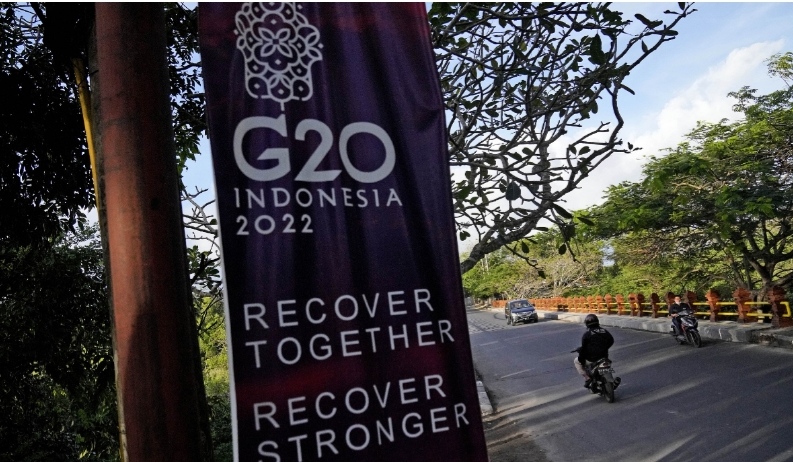G20 mechanism must loosen taut strings of the world

G20 Indonesia
The G20 Foreign Ministers’ Meeting (FMM) took place on Thursday and Friday in Bali, Indonesia, focusing on urgent issues such as the food and energy crisis. In the context of the Russia-Ukraine conflict, geopolitics has undoubtedly undermined the G20. The US and Western countries had said that “there can be no return to business as usual with the Kremlin,” and even a family photo after the meeting was not arranged. These “off-site factors” have all underlined the necessity to ensure that the themes and agenda of the G20 are not derailed.
The spillover effects of the Russia-Ukraine conflict are being transmitted to different parts of the world. On the two days of the G20 FMM, the UN agencies released consecutive reports, warning that “soaring inflation rates have seen an increase in the number of poor people in developing countries by 71 million in the three months since March 2022.” Its impact on poverty rates has been much faster than that of the COVID-19 pandemic, and 45 countries need external food aid. All this illustrates the seriousness and urgency of the problem. The world is in a race against time to prevent the crisis of cost of living from developing into a social and political crisis that in turn sparks wider unrest and conflict.
Exploring ways to alleviate the extreme plight of fragile countries and stabilize global food and energy markets as soon as possible should have been the theme of the G20 FMM, which is also what countries in deep crisis expected from the meeting. Regrettably, this meeting failed to issue a joint communiqué. The Associated Press noted that “deeply divided top diplomats from the world’s richest and largest developing nations failed to find common ground Friday over Russia’s war in Ukraine and how to deal with its global impacts, leaving prospects for future cooperation in the forum uncertain.”
The G20 members represent more than 80 percent of world GDP, 75 percent of international trade and 60 percent of the world population. It is the most powerful and representative communication and coordination mechanism in the world today. The “big trouble” the world is currently encountering needs to be addressed through consultation by all members of the G20. Western media said that the Russia-Ukraine crisis divides the bloc into so-called pro-Russia and anti-Russian camps, but this also reminds the West that it needs to step out of the small circle of G7 and NATO and listen to different voices and the real concerns of most other countries.
Some Western countries have previously demanded that host Indonesia kick Russia “out of the G20” and threatened to “walk out of the meeting” if Russia attends. This time, foreign ministers finally sat together, which shows a kind of rationality. It is unrealistic for the G20 to completely focus on the Russia-Ukraine conflict, and the world cannot be permanently trapped in the confrontation it has caused.
Food and energy issues are structural problems arising from the Russia-Ukraine conflict. In fact, the US Federal Reserve’s continuous interest rate hikes are also a vital reason for the pressure on developing countries. To resolve the current crises, the US and major Western powers should play a leading role. But the reality is, countries including Indonesia are actively mediating between Russia and Ukraine on the G20 platform. The US and Western major powers, which are supposed to offer dividends for world peace and development, have made the smallest contribution.
The US and the Western countries should do much more, no matter from the perspective of moral responsibility or their practical ability. What they bring to the G20 should not be just disputes, but also solutions to problems.
For example, developed countries are supposed to play a greater role in reducing the debt burden on developing countries, and Washington should use more financial means to help developing countries resolve their difficulties, instead of focusing on smearing others of creating “debt trap.”
G20 played an important role in dealing with the 2008 financial crisis. Now, with the world facing another upheaval, it is time for it to play its due role again. G20 must take the Global Development Initiative and a Global Security Initiative. The Cold War mentality must be abandoned, unilateralism must be opposed, and there should be no group politics and bloc confrontation. This should be both a solemn initiative and a rational voice.
Without security, there can be no development. Without development, security is just like a tree without roots. As UN Secretary-General António Guterres said on Thursday, no country can solve the challenges alone and multilateralism is needed more than ever.
The strings of the world have been taut for too long, and it’s time to loosen them. This requires collective rationality and joint action.



